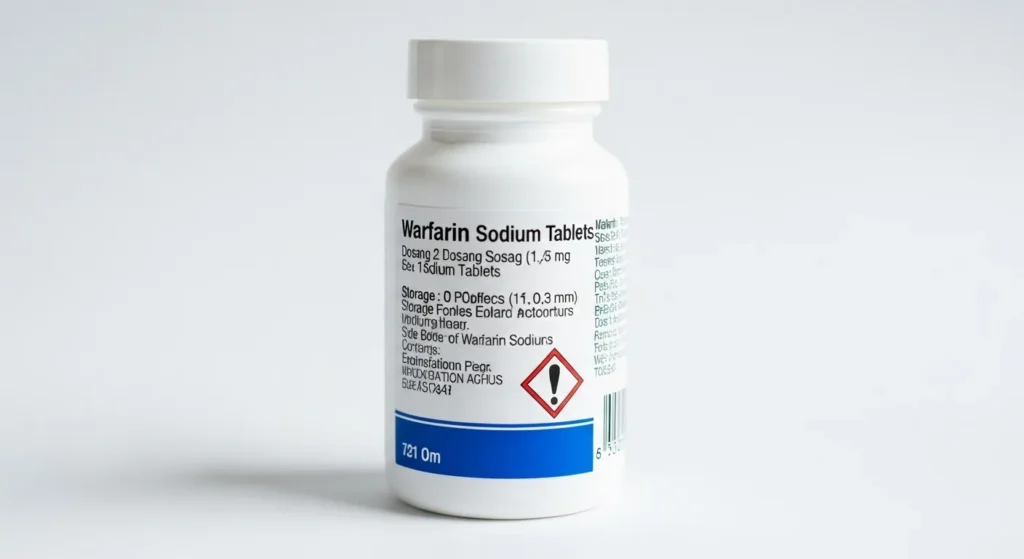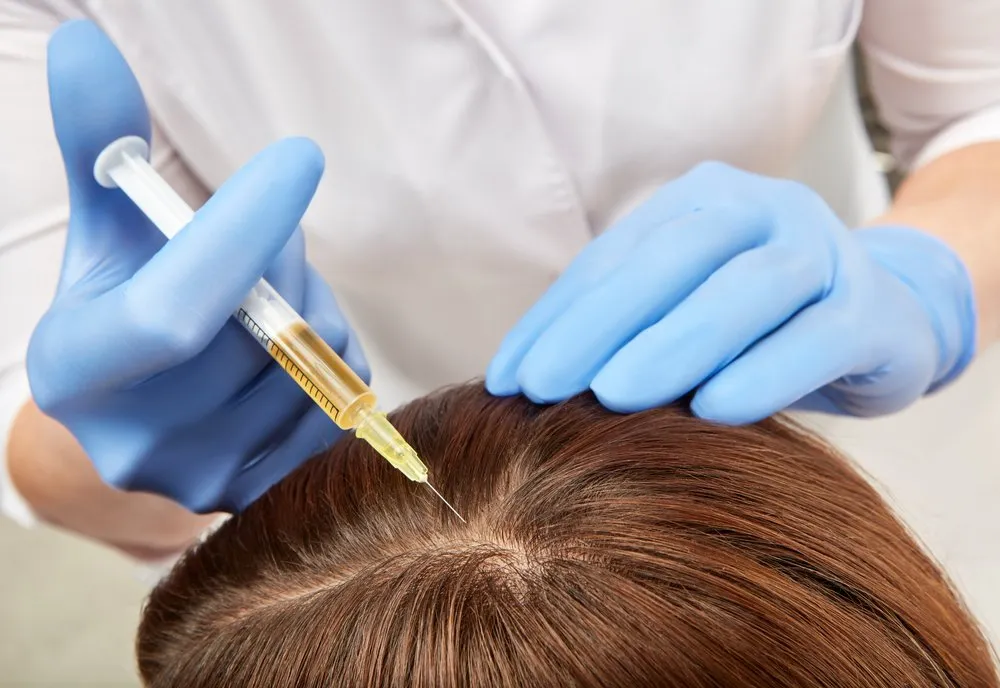Are you wondering does warfarin cause hair loss after noticing increased shedding since starting the medication? Warfarin, a widely used blood thinner, has been linked to hair loss in some patients, though the relationship isn’t always straightforward.
In this guide, you’ll learn what causes this potential side effect, when it typically begins, and how to manage or reverse it safely and effectively. Whether you’re on warfarin or caring for someone who is, this article provides clear, expert-backed answers and next steps to protect your hair and health.
What Is Warfarin and How Does It Work?

Warfarin is an oral anticoagulant, commonly prescribed to prevent or treat blood clots in patients at risk of conditions such as:
- Deep vein thrombosis (DVT)
- Pulmonary embolism (PE)
- Atrial fibrillation (AFib)
- Stroke prevention in heart valve patients
It works by interfering with your body’s use of vitamin K, which plays a critical role in blood clotting. By reducing clot formation, warfarin helps lower the risk of serious complications, but like all medications, it can come with side effects.
Common side effects of warfarin include:
- Easy bruising
- Prolonged bleeding from minor cuts
- Fatigue
- Nausea
- Less commonly: hair loss
Does Warfarin Cause Hair Loss? Understanding the Link
While not as well-known as other side effects, hair loss (alopecia) is a recognized but rare adverse effect of warfarin.
How warfarin might affect hair follicles
- Warfarin may contribute to a condition called telogen effluvium, where hair prematurely enters the resting (telogen) phase and sheds.
- This can be triggered by stress on the body, including medications like warfarin, which disrupt the normal hair growth cycle.
Clinical studies and patient reports
- Some case reports have documented hair thinning in patients within weeks of starting warfarin.
- However, large-scale studies are limited, and the exact mechanism remains unclear.
- The U.S. FDA includes alopecia as a possible side effect in prescribing information.
Is hair loss from warfarin common or rare?
- It’s considered uncommon and may affect 1–3% of users.
- Women appear to report this symptom more frequently than men.
When Does Hair Loss Typically Occur After Starting Warfarin?
Understanding the onset timing of hair loss can help differentiate drug-induced shedding from other causes.
Early vs. delayed onset
- Most cases of warfarin-related hair loss occur within 6–12 weeks of starting the medication.
- However, delayed shedding can happen if the dosage changes or if the body undergoes added stress (e.g., illness or surgery).
Temporary vs. long-term shedding
- In most patients, the hair loss is temporary and reverses once the body adapts to the medication or after stopping it.
- Chronic loss is rare unless compounded by other health conditions.
Role of dosage and duration
- Higher doses or long-term use do not guarantee hair loss but may increase the risk.
- Individuals on multiple medications are more vulnerable.
Other Factors That May Contribute to Hair Loss During Warfarin Therapy
Hair loss may not always be caused by warfarin alone. Several underlying factors can worsen the situation:
1. Underlying health conditions
- Autoimmune diseases (e.g., lupus, thyroid disorders)
- Anemia or chronic inflammation
2. Nutritional deficiencies
- Low levels of iron, vitamin D, zinc, or biotin
- Poor diet due to illness or post-surgery recovery
3. Stress or major illness
- Physical or emotional stress can accelerate telogen effluvium
4. Drug interactions
- Combining warfarin with other medications (e.g., antibiotics, chemotherapy, or seizure meds) may amplify side effects
💡 Pro Tip: If you’re experiencing unusual shedding, speak with your doctor about getting a blood test to check nutrient levels and hormone balance.
How to Manage or Reverse Hair Loss While on Warfarin
If you suspect warfarin is contributing to hair loss, don’t panic—there are safe and medically sound ways to address the issue.
1. Talk to your prescribing doctor
- Never stop or adjust warfarin without supervision.
- Your doctor may consider switching to another anticoagulant if appropriate.
2. Address nutritional gaps
- Supplement with iron, biotin, or vitamin D if deficiencies are found.
- Maintain a balanced diet rich in protein and healthy fats.
3. Gentle hair care routines
- Avoid tight hairstyles, heat styling, or harsh chemicals.
- Use sulfate-free shampoos and scalp massages to stimulate blood flow.
4. Explore safe hair restoration options
- Minoxidil (topical) may be considered under medical advice.
- Low-level laser therapy (LLLT) and PRP therapy can support regrowth in some patients.

Can You Stop Warfarin Because of Hair Loss? Risks and Considerations
Hair loss may feel distressing, but stopping warfarin suddenly can lead to serious, life-threatening complications.
The dangers of discontinuing warfarin suddenly
- Increased risk of stroke, pulmonary embolism, or deep vein thrombosis.
- Especially risky for patients with mechanical heart valves or AFib.
Possible alternative anticoagulants
- Newer options like apixaban (Eliquis) or rivaroxaban (Xarelto) may be considered.
- These drugs have different mechanisms and may have fewer side effects, though more research is needed regarding their effects on hair.
Doctor-guided adjustments
- Your healthcare provider will weigh the risk vs. benefit ratio before making any changes.
When to Seek Help from a Specialist
If you’re unsure whether your hair loss is related to warfarin or another issue, it’s best to consult a specialist.
You should seek help if:
- Hair shedding continues beyond 3–4 months
- You notice bald patches or scalp inflammation
- Hair loss affects your quality of life and mental health
Specialists who can help:
- Trichologists (hair and scalp experts)
- Dermatologists
- Hair restoration surgeons
FAQs About Warfarin and Hair Loss
Q: Is hair loss from warfarin permanent?
A: Usually not. Most patients experience temporary shedding that resolves after a few months.
Q: How long does it take for hair to regrow after stopping warfarin?
A: Hair typically begins to regrow within 3–6 months after discontinuation, depending on overall health.
Q: Can you use minoxidil while taking warfarin?
A: In many cases, yes—but always consult your doctor first to avoid interactions or scalp irritation.
Q: Are newer anticoagulants less likely to cause hair loss?
A: Some patients report fewer side effects with newer medications, but more research is needed for conclusive evidence.
Take Your Next Step
If you’re experiencing hair loss while on warfarin or any other medication, don’t wait to find answers. At Dr. Rana Irfan’s ABHRS and ISHRS-certified surgeon Hair Restoration Clinic in Islamabad, we offer personalized consultations to identify the cause and develop a safe, effective plan for regrowth.
Schedule your appointment today to take control of your hair health, with solutions backed by medical expertise and compassion
